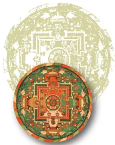The montrial conference
This is the story of an encounter of people who belong to two communities in tragic confrontation. It is quite a surreal tale of professional lectures and clinical meetings being held against a complex background of monstrous violence, both communities severely shaken by death and destruction. Our intention was to use our psychological skills to fill professional needs and also to open a constructive and supportive dialogue with Palestinians. We expressed our solidarity with their struggle for freedom, as Israelis who support peace, human rights and non violence.
We, a group of Israeli mental health professionals, backed by Physicians for Human rights-Israel, held meetings with a bigger and younger group of Palestinian colleagues from SOS-Bethlehem, whose arrival was frequently delayed because of the military checkpoints. We conducted joint intensive meetings, lectures and group discussions on clinical cases with psychological trauma of children and adolescents as the central issue. Trauma destroys us emotionally, but learning to treat it could unite us in an atmosphere of healing. We did not talk openly about politics although dialogue and socializing developed during the sessions and the coffee breaks.
In the course of the meetings we asked ourselves what is the real, deep reason that drives us to meet with Palestinians?
At the conscious level our intention was to link our professional, therapeutic skills to socio-political action. We live a drama of collective traumatic situations, resulting from the constant bloodshed between both communities. At a deeper level, I felt that the real common emotional ground that drove our group was the wound that we carry from our collective traumatic past: the Second WW Nazi genocide of the Jews. If we add the displacement of the Palestinians from their land by the Israelis in 1948, we have two peoples afflicted by collective trauma, who since then, blame each other of constant death and retraumatization. Both communities keep trying to weaken, undermine or even destroy the other, and this reinforces unipolar archetypal projections. These tragedies are recent: many of us are descendants of Holocaust survivors and the Palestinians' parents were uprooted from their land. These are cultural complexes that affect our peoples, which if left untreated, can lead to archetypal Evil.
The real motivation could have been the healing of the Other's wound, provoked by a sense of guilt, of feeling that our people could inflict so much pain on others, after what we went through in the most extreme racist crime in recent history. We were conscious that they were also causing much pain to us, and had to deal with our own anger and suspicion. As "good Israelis" we played a Mercurial role of middlemen, or tricksters, and thus got the dubious role of absorbing shadow projections from both sides: We were looked with suspicion by the Palestinians as representatives of the Israeli aggressors, like in our case presentation of the traumatized son of a pilot, and seen almost as traitors by part of our people.
In the encounter between the 2 groups there was a basic asymmetry and duality: Palestinian vs. Israeli, Moslem, Christian vs. Jew, young-old, less experienced-more experienced, oppressed-oppressor, a fertile ground for shadow projections. The asymmetry and the military power gap between Israelis and Palestinians are strategically very clear. At the psychological collective level, the aggressor-victim archetype is central. The feeling of victimization is common to both peoples while the aggressor pole is projected on the other. Palestinians are the victims of the occupation, with its intrinsic violence and abuses. We Israelis, while being really attacked, tend to feel constantly vulnerable without any relation to our enormous military strength.
The other question we asked which leads to the third motivating factor is: Can professionals who belong to the oppressor develop a teaching and therapeutic relationship with the oppressed? Formally, we showed that it was possible. In archetypal terms, and assuming I feel close to the archetype of the wounded healer I can ask if Israelis can be healers of the collective psychological wound of Palestinians who feel hurt and are being really hurt by us. Being conscious of our internal wound and of the Paternalistic Doctor shadow that can so easily appear in the colonial situation, we tried to develop an empathic, equalitarian relationship. As a result we could advance, mainly in healing our own wound, by allowing an atonement of guilt feelings.
From the Palestinian side it seems that the real, concrete need that we were expected to fulfill in an omnipotent way was an end to occupation. On the other hand, the emphasis on the common language of therapy and the personal relations created trust and "humanisation of the archetype". Some reparation could be achieved by the attitude of plain human good will and respect towards them by those perceived as their aggressors. During a Jungian workshop a Palestinian psychologist cried emotionally, while admitting that for the first time in her life she met Israelis in a position of equality.
My impression from the meetings was that no real healing can be achieved, only “moments of reprieve” in Primo Levi's words, those brief moments that can humanize the other.
So what could be Jungian in embracing Human Rights as the main issue?
During the meetings I was wondering what I was doing. I often felt that I should become the political activist I had always dreamt to be and stop just talking. But politics may be seen as the art of transforming into slogans the complexities of the psychology of the collective. On second thoughts, talking therapeutically has a very political meaning.
This raised the need to use my Jungian skills that were usually confined to my private practice.
Our ideological position, despite rationalizations, appears to be based mostly in emotional, moral and ethical factors, all rooted in a deep archetypal level of collective myths. Erich Neumann in his book "Depth psychology and a new ethic", written in 1949, with the Holocaust and the Second WW in mind, gave analytical psychology a moral, ethical dimension: he described the "old ethic" based on suppression and repression of the shadow, and agreement with the values of the collective. Only the Inner Voice, the individual expression of psychic truth, the voice of the revolutionaries, can stand against the conscience of his time. He proposed a "new ethic" based on acceptance and integration of the shadow, of his "own evil", on fuller insight and wholeness and thus permitting "reconciliation with the dark brother of the whole human race, solidarity with others, with the whole human species and its history". Acceptance of my own dark shadow can lead me to solidarity with the most rejected in our society, mainly the Palestinians. Who inhabits our shadow? Neumann says: symbols, archetypal ideas, and primitive behavior patterns. In my case, it may be the shadow of Power, which developed over the wound of the Holocaust.
I am tempted to say that human rights concepts contribute to Jungian practice more than what Jungian ideas help the understanding and practice of human rights. These rights are supposed to be basic and universal. The moment they are open for ideological questioning the gate for their limitation is opened.Let us not see only shadows. The shadow mirroring play can paralyze us. Sometimes Evil is Evil and there are not two sides to it. The new ethic can give us a clue on how to be a psychological militant who defines Good and Evil in a non fanatic way. It can be done by opening our ears and our hearts to the Other and listening to the Inner Voice that comes from the Self and not from collective values denying its own dark side. Admitting the tension of opposites in our inner world does not mean that we cannot take sides and stay suspended in the middle.
Let us use empathy and subjectivity on a sociopolitical level. We should not be ashamed to try to be more generous and compassionate, and shout loud and clear that something is Evil. Above all, the brutal manifestations and dumb bureaucracy of the military occupation are Evil and totally strange to the humanistic, subtle, humorous, warm and trickster tradition of the Jewish Diaspora. Also suicide bombings can be explained ideologically as violence of the Intifada, the uprising, but cannot be accepted in terms of human rights.
Our Jungian psychological knowledge can help in our encounters with the Other by a creative and intuitive use of counter-transference. During our project at times it raised paternalistic and angry feelings in me when the Palestinians did not "behave" according to expectations, and reacted passive-aggressively. They were frequently unsatisfied with our contribution, failed to arrive to scheduled meetings, to read papers, or to prepare clinical presentations. Understanding my "colonialist shadow" can give me a clue on how strongly Palestinians harbor feelings of victimization, of rejection, and how much they seek respect and dignity.
At the peak of writing this paper, I had a dream
Suddenly we decide spontaneously to escape and avoid battle. We sneak out into the darkness of the streets of Tel Aviv. I feel very relieved."
I need to guard against heroic inflation and the inevitable destruction it brings with it, like it happened in the suicidal rebellion of the Jews against the Romans. Instead of the shadow of the patriarchal Roman hero, I chose the feminine side of Eros and connectedness while being a trickster and keeping my consciousness awake.
I believe this may be the way of therapy and peacemaking.

